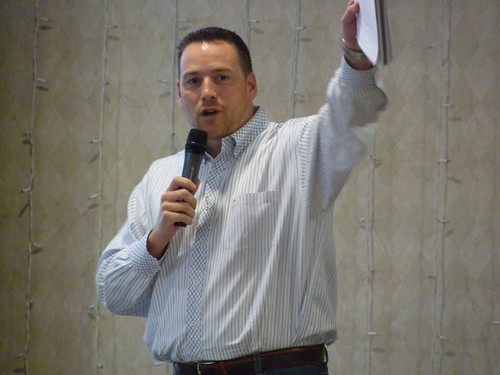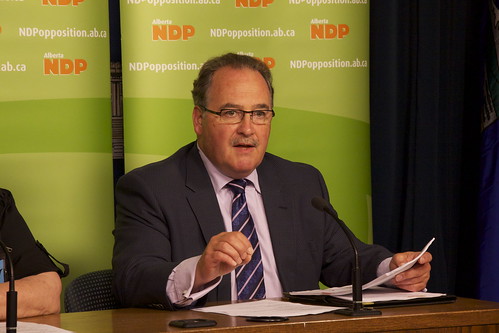Former Wildrose Alliance Party leader Paul Hinman staged an odd and brief reappearance on Alberta’s political stage this week when he announced his plans to run for the leadership of the United Conservative Party. But when the Sept. 12, 2017 deadline for candidates to deposit a $57,500 fee had passed, Hinman did not appear to make the cut.
Hinman’s blip on the political radar this week got me thinking about the bigger role he has played in shaking up Alberta’s political environment. Not as a major player but as a secondary character.
His time as leader and sole MLA representing the social conservative Alberta Alliance and Wildrose Alliance from 2004 to 2009 was fairly unremarkable, but it was the role he played after he resigned as leader that had a much bigger impact in our province’s political history.
After he was defeated in his bid for re-election in Cardston-Taber-Warner in 2008, Hinman was returned to the Legislature by a 278-vote narrow victory in a September 2009 by-election in Calgary-Glenmore. The seat was previously represented by deputy premier Ron Stevens and was believed to be a Progressive Conservative urban stronghold.
Even though he would again be unsuccessful in his bid to get re-elected in the following general election, Hinman’s win undoubtably added to the momentum of Danielle Smith‘s Wildrose Alliance going into the 2012 election.
But what would have happened if Hinman had lost that by-election race in Calgary-Glenmore?
Hinman’s by-election win provided early credibility for the Wildrose Alliance by showing that the party could elect candidates in long-held PC Party constituencies. Without this by-election win, the Wildrose Alliance’s momentum could have stalled or slowed going into the 2012 election.
Liberal candidate Avalon Roberts finished only 278 votes behind Hinman. Had she won the by-election, David Swann might have stayed on as party leader instead of resigning in 2011. A win in Glenmore might have led the Liberals to experience a resurgence in support going into the 2012 election, building on the party’s 2008 gains in Calgary. Or maybe the PCs would have simply won back the constituency in the following general election, as they did in 2012.
Popular city councillor Diane Colley-Urquhart placed third as the PC candidate in the by-election, which was not really a reflection of voters feelings towards her but of the unpopularity of then-premier Ed Stelmach in Calgary. If Colley-Urquhart had held on to Glenmore for the PCs, would PC MLAs Heather Forsyth and Rob Anderson have crossed the floor to the Wildrose Party in January 2010?
And an even larger ‘what-if’ question is, if Hinman had not won the by-election and his party’s momentum had sputtered, would Stelmach have resisted pressure from his cabinet and party to resign in 2011? Would he still be premier today?
While Hinman’s narrow win in a 2009 by-election is now an obscure footnote in Alberta’s political history, its impact on our province’s political environment and the split it helped create in the conservative movement in Alberta was huge.
Thinking about these kinds of scenarios can be endless fun for politicos (or at least for me).












